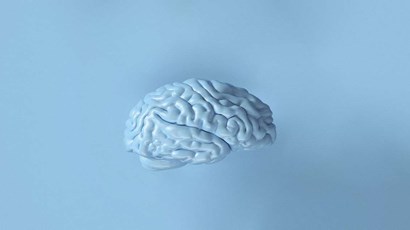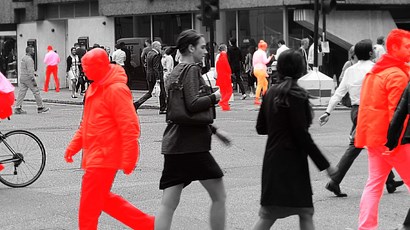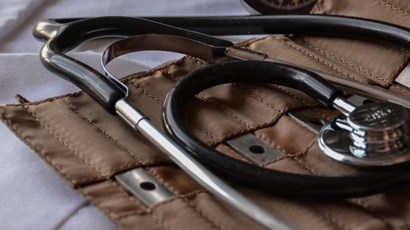Living with High Blood Pressure
Losing excess weight can make a big difference to your blood pressure. Blood pressure falls as each excess kilogram is lost. Losing excess weight has other health benefits too.
How can lifestyle changes help lower blood pressure?
Regular physical activity
If possible, aim to do some physical activity every day. Detailed advice on how much exercise to do is given in Government guidelines (see Further Reading, below).
If you previously did little physical activity and you change to doing regular physical activity, it can reduce your systolic blood pressure. You should seek medical advice before undertaking strenuous exercise if you have high blood pressure.
Eat a healthy diet
Briefly, this means:
- AT LEAST five portions, or ideally 7-9 portions, of a variety of fruit and vegetables per day.
- A THIRD OF MOST MEALS should be starch-based foods (such as cereals, wholegrain bread, potatoes, rice, pasta), plus fruit and vegetables.
- USE WHOLEGRAIN versions of starchy foods (such as rice and pasta).
- NOT MUCH fatty food such as fatty meats, cheeses, full-cream milk, fried food, butter, etc. Use low-fat, mono-unsaturated or polyunsaturated spreads.
- INCLUDE 2-3 portions of fish per week. At least one of these should be 'oily', such as herring, mackerel, sardines, kippers, pilchards, salmon, or fresh (not tinned) tuna.
- If you eat meat it is best to EAT LEAN MEAT, or eat poultry such as chicken (without the skin which is full of saturated fat!).
- If you do fry, choose a VEGETABLE OIL such as rapeseed or olive.
- LIMIT SALT in your diet (see below).
A healthy diet provides benefits in different ways. For example, it can lower cholesterol, help control your weight, and provide plenty of vitamins, fibre and other nutrients which help to prevent certain diseases. Some aspects of a healthy diet also directly affect blood pressure. For example, if you have a poor diet and change to a diet which is low-fat, low-salt and high in fruit and vegetables, it can significantly lower systolic blood pressure.
Have a low salt intake
The amount of salt that we eat can have a major effect on our blood pressure. Public Health England says excess salt is one of the most important risk factors for high blood pressure we can change. Government guidelines recommend that we should have no more than 5-6 grams of salt per day. On average, we eat just over 8 grams a day. About 3/4 of the salt we eat comes from processed food, where it's often not obvious - for instance, packet soups and sauces and even breakfast cereals can be high in salt. Tips on how to reduce salt include:
- Use herbs and spices rather than salt to flavour food.
- Limit the amount of salt used in cooking. Do not add salt to food at the table.
- Choose foods labelled 'no added salt'.
- Avoid processed foods as much as possible.
- Salt substitutes are available, containing a reduced amount of sodium, the chemical that puts your blood pressure up. However, these often contain large amounts of potassium, which may be unsuitable for older people, people with diabetes, pregnant women, people with kidney disease and people taking some antihypertensive drugs, such as ACE inhibitors and angiotensin-II receptor blockers. If in doubt, check with your doctor.
Drink alcohol in moderation
Too much alcohol can be harmful and can lead to an increase in blood pressure. You should not drink more than the recommended amount. Currently the maximum recommended amount for men and women is no more than 14 units of alcohol per week. Units should be spread out through the week and there should be at least two alcohol-free days a week. Pregnant women should not drink at all. One unit is in about half a pint of normal-strength beer, or two thirds of a small glass of wine, or one single pub measure of spirits.
Cutting back on heavy drinking improves health in various ways. It can also have a direct effect on blood pressure. For example, if you are drinking heavily, cutting back to the recommended limits can lower a high systolic blood pressure.
Smoking and high blood pressure
Smoking does not directly affect the level of your blood pressure. However, smoking greatly adds to your health risk if you already have high blood pressure (hypertension). You should make every effort to stop smoking. If you smoke and are having difficulty in stopping, see your practice nurse for help and advice.
Further reading and references
Guidelines for the management of arterial hypertension; ESH/ESC Clinical Practice Guidelines, European Society of Cardiology (2013)
2016 European Guidelines on cardiovascular disease prevention in clinical practice; European Society of Cardiology (2016)
Hypertension in adults: diagnosis and management; NICE (August 2019 - last updated March 2022)
He FJ, Li J, Macgregor GA; Effect of longer term modest salt reduction on blood pressure: Cochrane systematic review and meta-analysis of randomised trials. BMJ. 2013 Apr 3346:f1325. doi: 10.1136/bmj.f1325.
Description of the DASH (Dietary Approaches to Stop Hypertension) Eating Plan; National Institutes of Health
Ettehad D, Emdin CA, Kiran A, et al; Blood pressure lowering for prevention of cardiovascular disease and death: a systematic review and meta-analysis. Lancet. 2016 Mar 5387(10022):957-67. doi: 10.1016/S0140-6736(15)01225-8. Epub 2015 Dec 24.
UK Chief Medical Officers' Physical Activity Guidelines, 2019
Lipid modification - CVD prevention; NICE CKS, August 2019 (UK access only)
Alcohol and drug misuse - Prevention and treatment guidance; GOV.UK



